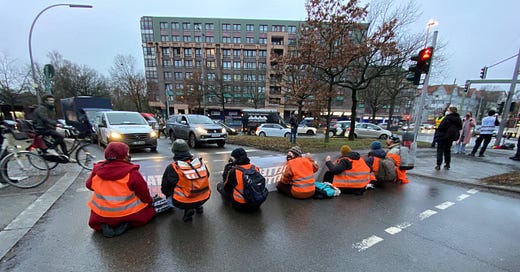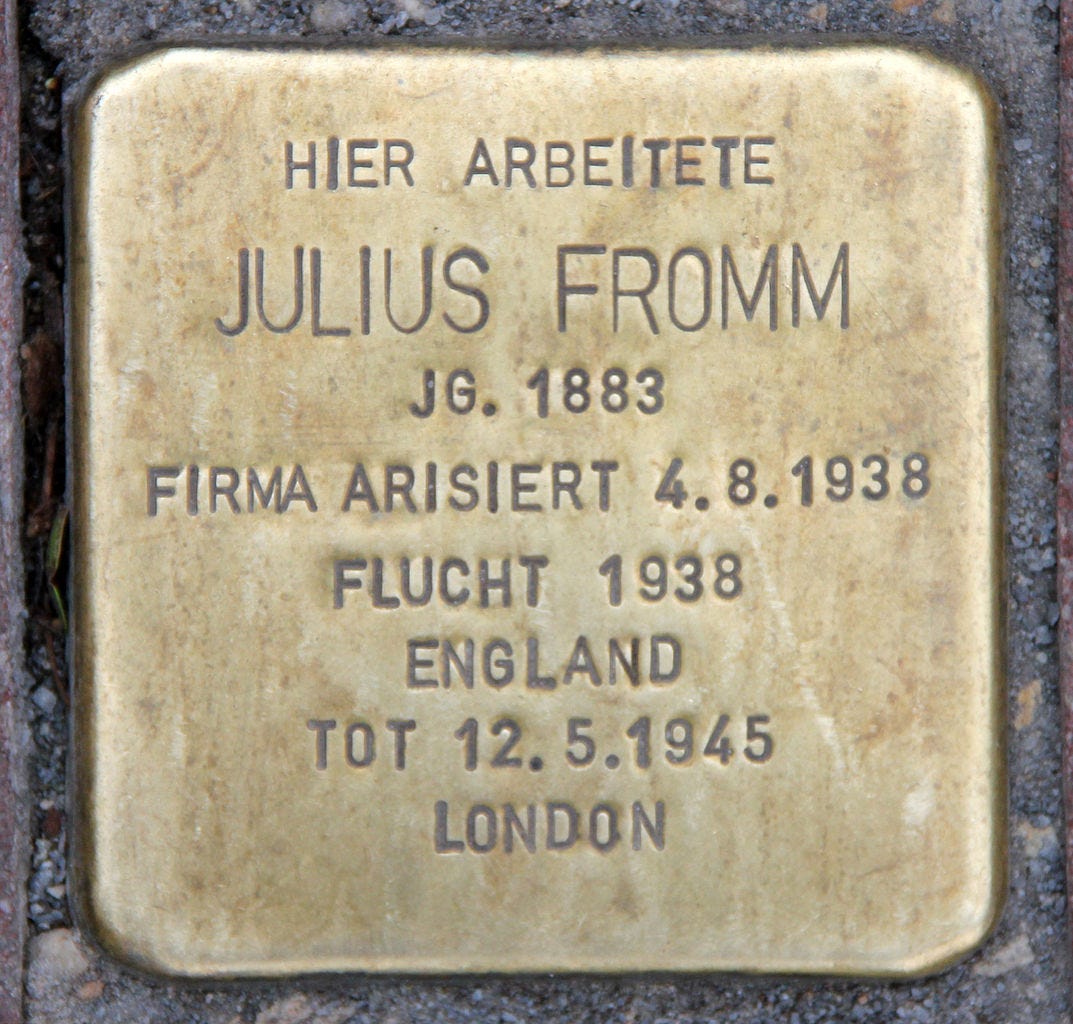Dear 20 Percent,
I’ve started reading Sanierungsfall Berlin — which best translates as “basket case Berlin” — a book published last year by controversial ex-politician and real-world troll Marcel Luthe. If you’re to believe Luthe, the capital is a failed state where nothing works, organised crime is given free rein, and corruption and incompetence are the norm. The highpoint of the book so far is Luthe’s fantastic term Verantwortungslosigkeitspingpong (irresponsibility ping pong), a tendency widespread in Berlin to shift the blame to another politician, party or city when something goes wrong in the capital.
There’s a fair amount of Verantwortungslosigkeitspingpong in another book I’m reading at the moment as well: ex-mayor Klaus Wowereit’s 2018 memoir Sexy, aber nicht mehr so arm: mein Berlin. Wowi’s Berlin couldn’t be further from Luthe’s. In a nutshell: Berlin was once really poor and messed up because of the Cold War but now we’re a cosmopolitan, almost normally functioning city and stuff really isn’t that bad anymore. Our joke airport is all Brandenburg’s fault, naturally.
But of course he’d say all that: That’s exactly when he was mayor.
The truth probably lies between Luthe and Wowereit’s visions of the city. Messy and muddling through, yes. But also dynamic and full of promise — which is the only way to explain why tens of thousands still move to Berlin every year. How do you see it? Let us know.
Scroll on for the news!
Have a lovely week,
Maurice
The Berlin corona stats for Tuesday, January 25
Fully vaccinated: 74.3% (74% Friday)
Received booster: 51.1% (50.1% Friday)
New cases in one day: +13 211 (10,679 Friday)
Total deaths: 4,088 (+11 over Friday)
🔴 7-day Covid-19 incidence (cases per 100,000): 1,593.4 (1,258.3 Friday)
🔴 7-day hospitalization incidence (also per 100,000): 15.6 (14.7 Friday)
🟡 Covid-19 ICU patient occupancy: 17.5% (16.8% Friday)
Source: Berlin’s corona information page, Impfdashboard
School optional
Thanks to surging omicron numbers, the city government has decided schoolkids are no longer required to go to school from today (Tuesday). “Face-to-face teaching remains the standard form,” though, the education department wrote in characteristic doublespeak. “Schools will offer learning opportunities to all pupils as much as possible. Should parents decide against their child's presence at school, this must be communicated to the school immediately in writing.” To which my colleague Andrew quipped on Twitter: “Hundreds of Berlin teenagers are practising their parents signatures”. The whole thing seems like a recipe for chaos.
The backlash has been swift. Reinickendorf’s borough medical officer called the decision “appallingly stupid” while Christoph Keller, Mitte’s councillor for health affairs, complained that no one asked the district councils, actually reponsible for implementing corona measures locally, whether it was a good idea. Even Unicef chimed in.
Daycare open, limited hours
Berlin daycare centres switched to “limited regular operation” on Monday, which means they can stay open — but with reduced hours and social distancing measures, such as keeping groups of kids separate. Parents are asked to stay outside during drop-off and pick-up. Parents will also have to test their kids three times a week once enough lollipop Covid tests arrive (any day now politicians have promised for months). About 670 of Berlin’s 2,700 Kitas are closed due to outbreaks.
Climate blockade
Climate activists blocked access roads leading to the A103 autobahn in Steglitz and the A114 autobahn in Pankow during rush hour traffic Monday morning. Behind the protest was Aufstand der Letzten Generation (Uprising of the Final Generation), a group demanding legislation against food waste as a way to combat climate change. The cops carried away the activists in both locations but not before commuters were caught in lengthy traffic jams
Another kind of protest

Anti-vaxxers continued their Monday “walks", with an estimated 7,000 people protesting against the government’s corona policy throughout Berlin. The cops said 252 people were arrested and 257 citations were issued for a variety of mostly-corona crimes (aka masks and ignoring social distancing). Residents in Prenzlauer Berg, however, staged a counter protest at the Gethsemanekirche, which was pivotal in the peaceful revolution in 1989 that helped bring down the Wall. Anti-vaxxers tried unsuccessfully to use the church for their own movement.
Skateboard hit-and-run
Police said a 38-year-old woman died in hospital after being knocked over by one of two skateboarders on a walkway outside a building at Waldsassener Straße 40 in Marienfelde. Neither skater stopped to help. The incident took place on January 18 and the cops are appealing to witnesses to come forward. If you saw something, say something.
Free WiFi back by mid-2022
Berlin’s 499 free public wifi spots — in libraries, at Alexanderplatz, the Brandenburg Gate and elsewhere — were switched off on New Years because a contract with Nuremberg firm ABL ran out. The city says it failed to ensure seamless transition to a new provider because it was too busy setting up vaccination centres. Now the administration wants its own IT department (ITDZ) to take over the project, or organise another tender. Officials say free internet will be back by mid-summer! Officials say a lot of things.
It’s raining tech money
Need a million to get your killer app off the ground? Now, more than ever, you might not have to travel to London or the Bay Area to beg for seed capital. Cherry Ventures, a Berlin fund that kicked off with €10 million in 2013 and backed Zalando, Infarm, Flixbus and a handful of unicorns you’re probably never heard of — says it’s now put together €300 million for a new fund to back European start-ups. Now get out there and pitch!
Comedy open mic: Words
Got a joke or two you’re dying to share with fellow anglophones? This Thursday could be your break. Head to Mysliwska in Schlesische Straße, Kreuzberg, for Words, hosted by Deo Katunga. The night offers two newcomers a spot each time. Reserve your seats here but leave those tired Berghain jokes at the door.
Factoid
In 1912, the Jewish Polish-German entrepreneur Julius Fromm invented the seamless rubber condom — resembling those we know today — and began manufacturing them in Prenzlauer Berg two years later, marketing them in three-packs under the brand Fromms Act (Fromm means pious). By 1931, he’d opened an ultra-modern plant in Köpenick and was moving 50 million rubbers a year. The Nazis “aryanized” the company: it was sold to Hermann Göring’s godmother for a fraction of its market value. In 1938, Fromm fled Germany for Britain, where he died in 1945. Read the full story.
That’s all for now. If you like 20 Percent Berlin please consider contributing a few bucks a month : )





